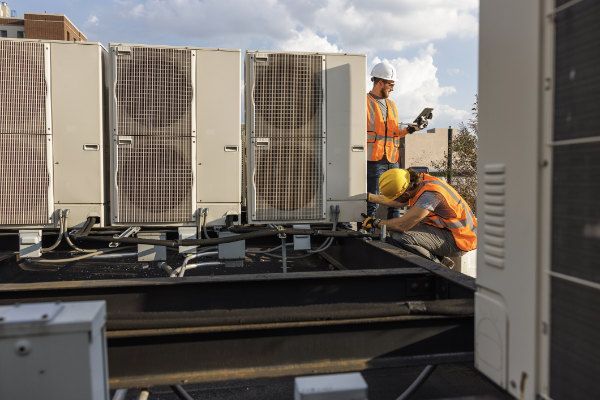As a heating, ventilation, and air-conditioning (HVAC) contractor, you are an essential service provider, restoring comfort to homes and businesses. When you fix a furnace in the dead of winter or an air conditioner during a sweltering heatwave, you’re a hero. But this vital work comes with significant risks. An employee could be injured on the job, a customer’s property could be damaged during an installation, or your firm could be sued if a complex system fails to perform as specified.
Fortunately, a comprehensive insurance plan can mitigate these risks, letting you focus on providing top-tier service to your clients. Let’s explore the essential insurance coverages every HVAC contractor should consider.

First Things First: Licensing and Professional Standards
Before we dive into specific policies, it’s crucial to have your foundational credentials in order. You are likely familiar with the licensing and bonding rules in your province, but it’s always wise to periodically review these requirements to ensure you remain in full compliance.
Furthermore, it’s important to keep your certifications, and those of your employees, up to date. Specialized certifications are often legally required for handling refrigerants or working with gas-fired equipment. Maintaining proper licensing and certifications is not just about following the law; it’s a critical step in minimizing liability and operating a safe business. A strong record of safety and compliance can also lead to more favourable insurance premiums.
Commercial General Liability (CGL) Insurance

Even with the best training, accidents can happen. This is where Commercial General Liability (CGL) insurance becomes your first line of defense. CGL protects your business from claims alleging bodily injury, property damage, or personal injury (like slander or libel) that occur on a job site or at your place of business.
For instance, if a technician accidentally causes water damage while flushing a boiler, your CGL policy would cover the resulting claim. If a client trips over a tool bag and is injured, you’re covered. CGL insurance helps pay for medical bills, legal defense fees, and the costs of judgments or settlements. Most policies start at $1 million in coverage, but an insurance broker can help you determine the appropriate limit for your operations. Many clients, and especially general contractors on larger construction projects, will require proof of CGL coverage before they hire you.
Protecting Your Vehicles and Property
As an HVAC contractor, your vehicles are the lifeblood of your business. A personal auto policy is not sufficient for work vehicles; you need a commercial auto policy. Ensure that your policy limits are high enough to protect your business assets and that all employees who drive company vehicles are properly named on the policy.
You also need to protect your physical assets with commercial property insurance. This covers your business location, including the building, tools, and equipment stored there. However, for the expensive tools and materials you transport to various job sites, standard property insurance is not enough. You’ll need an inland marine policy, which is specifically designed to cover property that is in transit or at a customer’s location.
Bundled Policies for Savings and Convenience
Many small businesses can benefit from a package policy, which bundles several key coverages into one package. A typical package policy includes CGL, commercial property, and business income insurance, which replaces lost income if your operations are halted by a fire or another covered event. Package policies are convenient and often more affordable than buying each policy separately.
Workers’ Compensation Insurance
If you have employees, most provinces mandate that you carry workers’ compensation insurance. This coverage provides benefits to employees for injuries sustained on the job. Adhering to strict, industry-approved safety protocols is the best way to keep your workers safe and your premiums down. Check with your provincial workers’ compensation office for more details on obtaining this coverage.
Professional Liability (Errors & Omissions)
If your work involves more than simple repairs and includes designing HVAC systems or providing engineering advice, you face an additional layer of risk. If you are found negligent or make a mistake in your design work that results in damages, you can be held liable.
Imagine you design and install a ventilation system for a commercial kitchen. If that system later proves inadequate, leading to health code violations and lost business for the restaurant owner, they could sue you for the cost of retrofitting the system and their lost income. Professional liability insurance is designed to cover these types of “errors and omissions,” paying for your legal defense and settlement costs up to the policy limits.
Ultimately, protecting your HVAC business requires a multi-faceted insurance plan. The best approach is to partner with an experienced insurance broker who understands the unique risks of the HVAC industry. They can help you create a tailored plan that lets you work with confidence.






